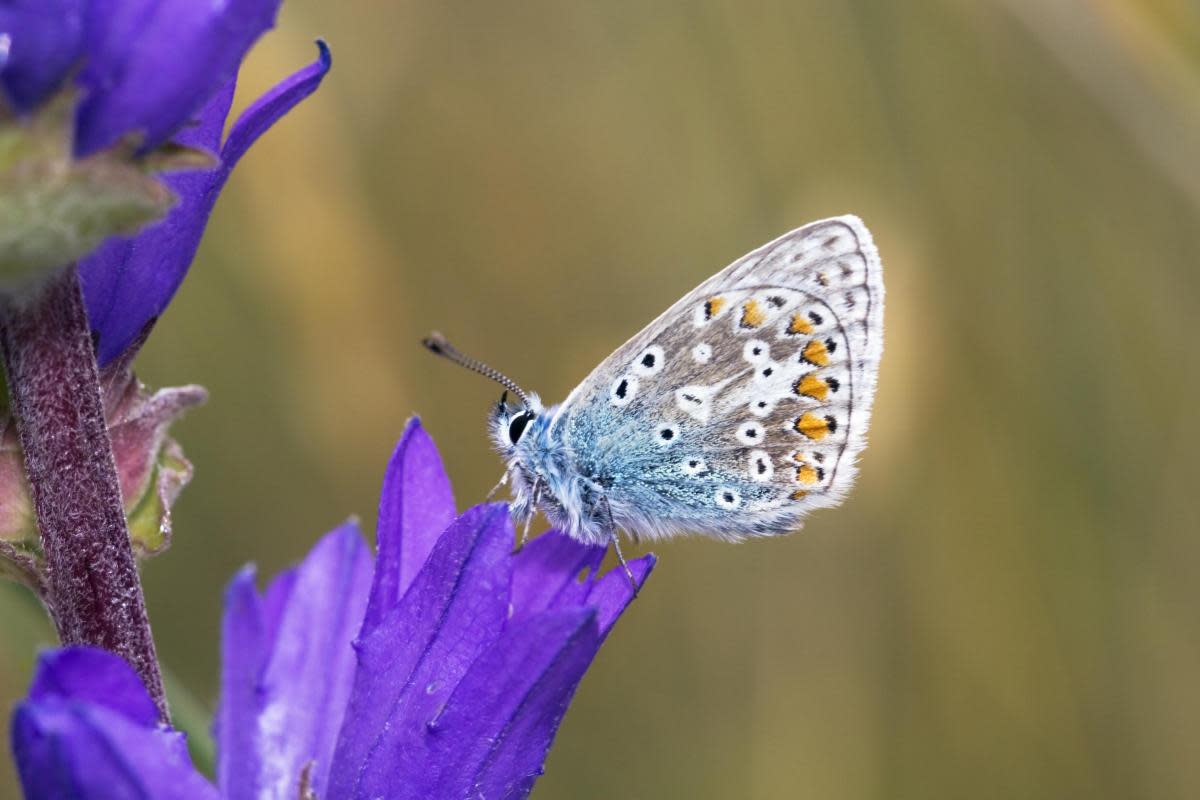Ten ways to make space for nature in Scotland during summer

Given the urgent need to tackle climate change and nature loss, our enduring bond with the natural world is vital – with NatureScot encouraging activities which foster a strong relationship
1 GO NATURAL
HELP alleviate flooding by avoiding artificial grass, paving or decking. Artificial grass blocks access to soil for insects and birds, has no climate benefits and isn’t actually maintenance-free. Make the best use of rainwater and reduce hosepipe use by capturing and storing rain in water butts - use it for washing cars, bikes, or external bins too.
2 CREATE CORRIDORS
ADD flowering pots or window boxes to encourage pollinators. If you have a garden reduce mowing to create an undisturbed wildflower patch, otherwise encourage your council to do the same at suitable greenspaces. These create natural corridors for wildlife to move through towns and cities, and will continue to be important as our climate changes.
3 LOVE WEEDS
WEEDS may traditionally have a bad name, but many, such as dandelions provide food for all types of pollinators such as bees, butterflies, moths, hoverflies and beetles. Think of them as amazingly resilient wildflowers – rather than weeds! Get out a magnifying glass or take a close up photo to see how beautiful they are.
4 PROVIDE WATER
PONDS attract wildlife such as frogs, bees and birds. Even using a washing up bowl of water or saucer of water on a windowsill can help. Add twigs or stones so insects can rest above water.
5 GIVE TIME
VOLUNTEERING is a fun way to make a difference, meet new friends and get outdoors. Join a local project, start your own or become a citizen scientist and submit sightings of wildlife, contributing to vital research.
6 SHARE CUTTINGS
PLANTS and seeds can be expensive, but for many pollinator friendly species, existing plants can be divided or new plants can be grown from cuttings and shared with friends and neighbours.
7 BE A LAZY GARDENER
ALLOW vegetation to die back naturally – leave twigs, leaves and natural debris as shelter for insects and other wildlife. Leave seedheads – a food source for birds and homes for insects.
8 HELP LOCAL BIRDS
ADD a bird box and feeders to your garden or outdoor space. Feeders that attach to windows are available, and are a great way to observe local birds, particularly if you don’t have a garden or are housebound. Chicks need protein to grow quickly so having more flowers to attract insects helps, and adding meal worms to bird feeders provides a snack for hungry chicks!
9 FEED THE SOIL
63% of the total carbon locked in our soil is found in our peatlands – help conserve them by using only peat-free garden products. Use farmyard manures and composts, or make your own. Avoid pesticides – alternatives are available
10 LITTER PICK/BEACH CLEAN
WHEN outdoors take a bag and pair of gloves and, where safe to do so, dispose of litter you find. Whether in our oceans, parks, rivers, or woods, it’s dangerous to wildlife – animals get trapped or try to eat it. Much of our waste doesn’t biodegrade. Get friends and family involved and clean up your area.
More ways to help:
www.nature.scot/makespace

 Yahoo News
Yahoo News 
